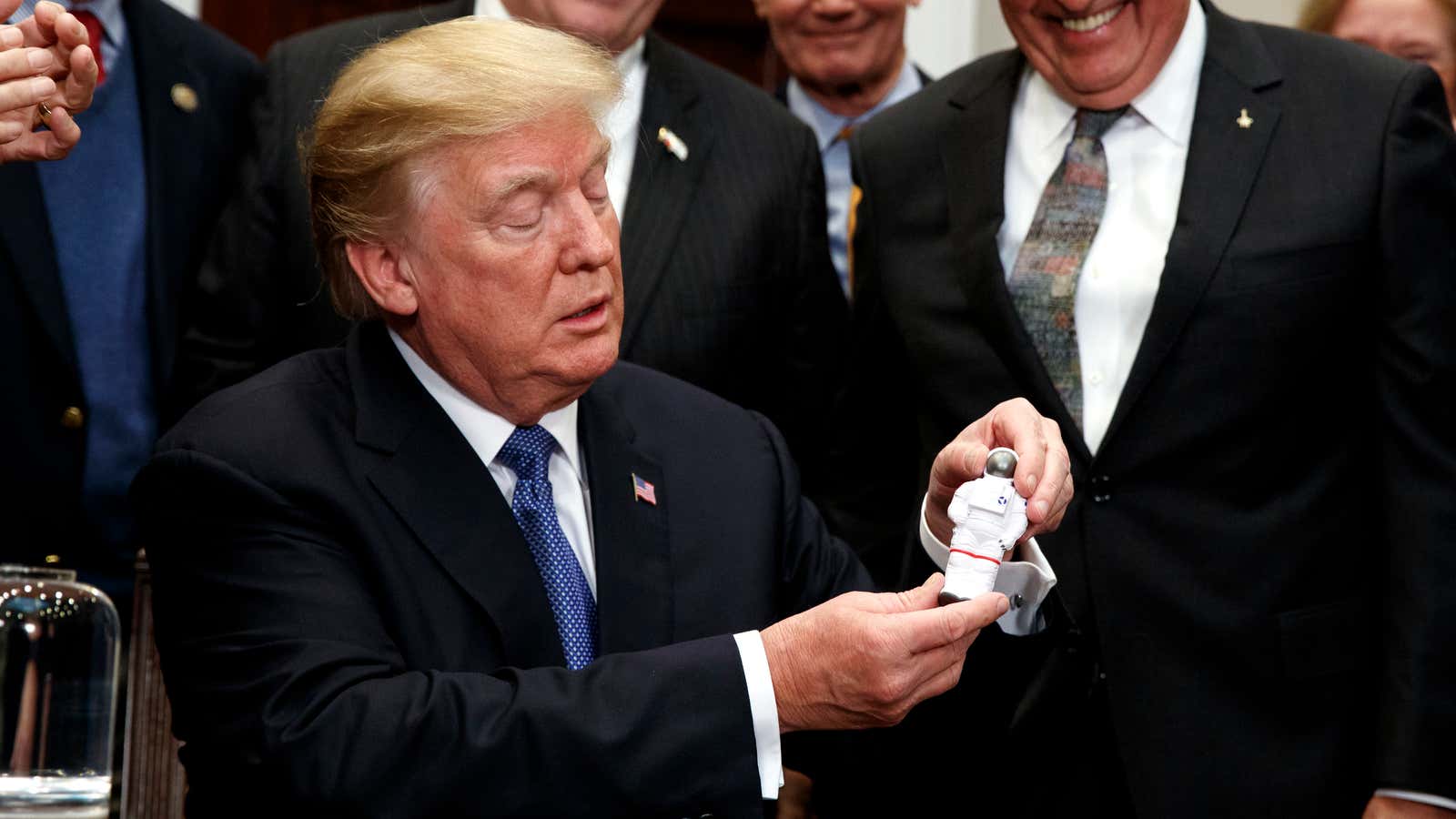“Space is a war-fighting domain, just like the land, air, and sea,” Donald Trump told a group of US Marines yesterday. “We may even have a Space Force, develop another one, Space Force.”
Trump haters howled—what a joke! “Trump’s Call For A ‘Space Force’ Makes Him The Laughingstock Of The Galaxy,” proclaimed the Huffington Post. But, with the unerring precision of a stopped clock twice a day, Trump has stumbled into a deadly serious policy debate—and sided against his own administration.
Although the president took credit for the idea, saying he came up with it himself while fooling around in a meeting, there is a real push in Congress for a dedicated space force, called a Space Corps by its chief proponent, Alabama representative Mike Rogers. So far, Trump’s Pentagon officials have said they don’t support such a reorganization. Neither does the US Air Force, currently responsible for military activity in space.
The US does have good reason to focus on national security in orbit. The US military depends on space for everything from communications to navigation. Fears over nuclear-armed missiles and anti-satellite weapons are growing, and so is the amount of investment in economic activity in space. The recent launch of four unauthorized satellites, and the lack of any clear avenue of response from the government, underscores this reality.
The Trump administration has said its goal is to make the US the key home for private space investment, with National Space Council executive director Scott Pace saying that “outer space is not a ‘global commons,’ not the ‘common heritage of mankind,’ not ‘res communis,’ nor is it a public good.”
The other reason the US might want a dedicated space force is more prosaic: The US Air Force is bad at buying space hardware, like rockets and satellites, cheaply and efficiently. One way to start fixing this long-running problem might be to adopt a clean slate, with a new agency. A model for a middle ground solution might be more of a Space Coast Guard than a Space Force, with civilian regulatory responsibilities as well as a military duties.
Of course, the Air Force is fighting tooth and nail to hang on to its responsibilities, and its budget. The service has appointed a new three-star general to focus solely on space security in an effort to convince its critics that it is taking space seriously.
Trump, attracted to grand projects with huge budgets that smack of American exceptionalism, has been a rhetorical proponent of space exploration since he came into office, re-establishing the National Space Council and calling for a return to the moon. So far, his budget proposals have not demanded major change at NASA, and Congress has largely ignored his wishes and his nominee to run the space agency, representative Jim Bridenstine.
